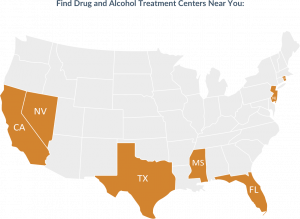Help for Parents Who Are Enabling Addiction (Tough Love vs Enabling)
What is Enabling? The Definition
Enabling means the family or friends of an addicted person help that person continue their addiction, often by not allowing that person to experience the consequences of their addiction.

Enabling can be spending money on a person with an addiction or buying them things that allow them to spend more money on drugs. It can also be making excuses for them and covering for them.
I often tell parents or family members of a person struggling with addiction that what they think they are doing to help their loved one is actually hurting them.
The Dangers of Enabling Addiction
Here’s a basic example of just allowing a person using drugs to live with you. Typically, every dollar a person with an addiction can get their hands on goes to buying drugs. When you allow an addicted person to live with you rent-free, you are essentially giving that person $500 or more a month to buy drugs with. The U.S. had over 70,000 overdose deaths in 2017. You could be giving them the extra dollars they need to overdose and possibly die.
Examples of Enabling Behaviors
 Below are some examples of what I consider dangerous helping, or “enabling.”
Below are some examples of what I consider dangerous helping, or “enabling.”
Paying for a phone: Often the last thing a person with an addiction will sell to buy drugs is their phone. They need their phone to score drugs. If you pay their phone bill, you are actually freeing up more of their money for drugs and making it easier for them to feed their addiction. If they tell you their phone was lost or stolen and they need it to call you, that could really mean, “I traded my phone for drugs.” Don’t buy them a new phone; you are just buying them drugs.
Bailing out of jail: Jail is a horrible place to be. That said, jail can be a lot safer for an addicted person than being on the streets, where they can buy an unlimited amount of drugs. Only bail your child out of jail if they agree to go directly from jail to treatment. Select the facility, bring several people with you to pick up your child, and go straight to treatment. Set this up with the help of a treatment professional ahead of time. Don’t be surprised if your child bolts and doesn’t go to treatment. If that is the case, don’t bail them out again.
Car payments, insurance, repairs, or gas money: The car is the second favorite tool of the person with an addiction after their phone. It is a shelter, a place to use drugs, and a means to get the drugs. If you pay for gas, you are buying them drugs. So if your loved one asks for $10 for gas, that is $10 they are saving out of their own money they can spend on more drugs.
Giving clothes: It’s cold out there, so I need to buy my loved one shoes, a jacket, a sweater, etc. How can these little acts of human decency be hurting them, you ask? A person with an addiction may trade those new shoes and clothes for drugs in a heartbeat. You think you bought them clothes out of compassion, but you really bought them drugs out of denial.
Is It Better to Force Someone Into Treatment?
What should you do if you stop enabling and try to get your loved one to seek help, and they refuse? Will they benefit from treatment if you force them to go?
Maybe.
It doesn’t matter why or how someone gets to treatment. What really matters is what happens after they enter treatment.
I have seen people go to addiction treatment because of a court case, job requirement, a relationship in jeopardy, physical health problems, nowhere else to live, and family interventions. Then there are people that enthusiastically went because they wanted help. The one thing they have in common is that they had a good opportunity to recover from the disease of addiction.
Sometimes those forced into treatment grasp the treatment offered like a drowning person reaching for a life preserver. Sometimes the people that enter treatment willingly repel the treatment process like someone touching a hot stove. Key factors to successful treatment include picking treatment that meets the individual’s needs and continuing treatment as long as necessary.
So no matter what got your loved one into drug or alcohol treatment, it can be beneficial if they engage in the rehabilitation process.
Find Alcohol & Drug Rehab Centers Near You

-
- All Treatment Centers
- California
- Florida
- Nevada
- Rhode Island
- Texas
- Massachusetts
- Mississippi
- New Jersey
A Case Study of Enabling Gone Wrong
Let me tell you a recent story of a family I came in contact with. This family had a twentysomething son—I’ll call him John. He struggled with drug use and never really held a solid job. The parents allowed John to stay in their home even though they knew he was using opioids.
The thought of not allowing their son to live with them was a foreign concept. In their minds, these parents were doing the most loving thing they could to care for their child.
John’s parents were concerned that if they kicked him out of their home, something bad would happen to him.
What the parents did not know was that John was selling opioids to support his habit. Here’s what happened: Two people decided to rob John of his drug stash at his parents’ house, and they killed his father in the process.
This is the worst example I have experienced, but I am sure like many other parents, John’s parents thought they were helping him by letting him live in their home when they knew he was using drugs.
I eventually helped place John into treatment. A few days after his father’s death, he was arrested and charged with possession with the intent to distribute. You would think John would have voluntarily gone into treatment, the next day. But this was not the case. It took John’s lawyer telling him to go to treatment and approximately one month of pressure to get him to go.
Tough Love vs Enabling: Can Tough Love Work?
This topic has affected me personally. Years ago, I had to make a decision to place my then 16-year-old child in a one-year lockdown treatment program. Every day for a year I struggled with whether I did the right thing or not.
When I picked up my kid a year later, the first thing that they said was, “You saved my life. One of my friends is now in jail, one is dead, and another is in deep trouble.” My kid, previously a “D” student, went on to graduate high school and a major state university and is now employed, a homeowner, happily married, and a parent.
So yes, my tough love was the right thing to do.
Reflect on Your Own Enabling Behavior as a Parent
After you have given this article some thought, consider intervention if your loved one does not want to enter treatment.
Treatment professionals or interventionists across the U.S. can help you plan an intervention and may even conduct it.
Bruce Berman has helped several hundred people find treatment for alcohol addiction, substance abuse, and dual diagnosis. He has maintained continuous recovery from various addictions since September 1989.


